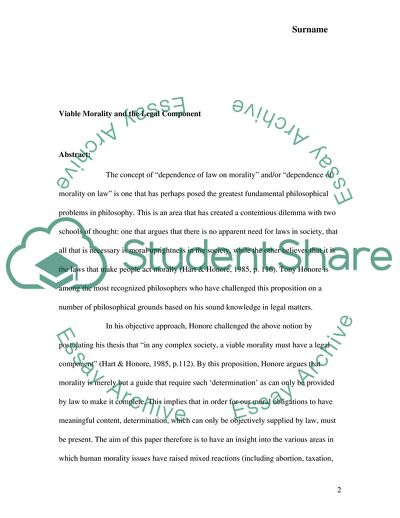Cite this document
(Viable Morality and the Legal Component Coursework Example | Topics and Well Written Essays - 1250 words - 17, n.d.)
Viable Morality and the Legal Component Coursework Example | Topics and Well Written Essays - 1250 words - 17. https://studentshare.org/philosophy/1724185-philosophy
Viable Morality and the Legal Component Coursework Example | Topics and Well Written Essays - 1250 words - 17. https://studentshare.org/philosophy/1724185-philosophy
(Viable Morality and the Legal Component Coursework Example | Topics and Well Written Essays - 1250 Words - 17)
Viable Morality and the Legal Component Coursework Example | Topics and Well Written Essays - 1250 Words - 17. https://studentshare.org/philosophy/1724185-philosophy.
Viable Morality and the Legal Component Coursework Example | Topics and Well Written Essays - 1250 Words - 17. https://studentshare.org/philosophy/1724185-philosophy.
“Viable Morality and the Legal Component Coursework Example | Topics and Well Written Essays - 1250 Words - 17”. https://studentshare.org/philosophy/1724185-philosophy.


